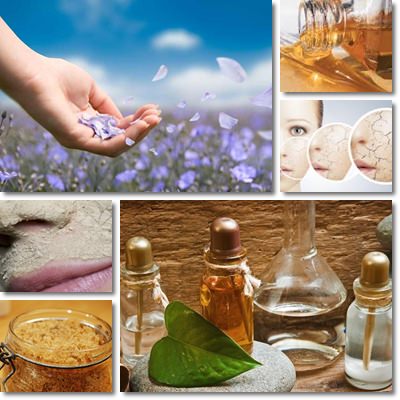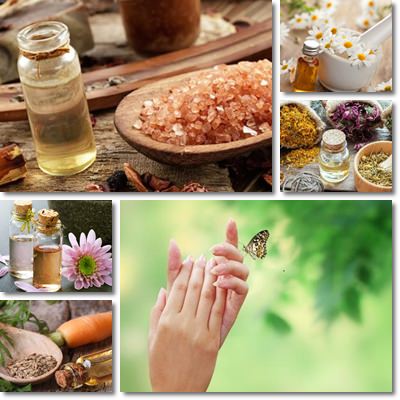Dry skin can prove as difficult to manage as oily skin. From feelings of tightness and visible peeling to itching and an overall unflattering aspect, the symptoms characteristic of dry skin may prove quite difficult to handle. But while we cannot simply change our skin type, we can improve its feel, appearance and symptoms.
There are several ways to improve dry skin naturally, both from the outside and from the inside. Nourishing and moisturizing dry skin as well as avoiding factors that may contribute to exacerbating its very nature are the best approaches to skin health.
Caring for dry skin requires a good understanding of both its causes and symptoms because dry skin is a normal skin type and should not be bothersome unless we are doing something that causes it to take on a severe form.
We may be harming our skin through inadequate washing routines, use of harsh skin care products, exposure to extreme weather conditions, poor diet, lack of sufficient amounts of certain vitamins and dietary minerals, lack of moisturizing and so on.
Approaching all of these aspects during our skin care routines can help us enjoy healthy, beautiful skin no matter its type.

Most people believe dry skin is a given and they can’t do anything about it. However, understanding what our skin needs in terms of care and nutrition and persevering in our skin care routines can contribute to surprising results.
Even when dry skin is caused by health issues we have little control over, it remains a symptom in itself and approaching it from both the point of view of treating the underlying condition and from the point of view of symptom management is ideal.
How to care for excessively dry skin?
Here are the main aspects to consider and best remedies and solutions to approach them:
1) Avoid harsh soaps
Most soaps are formulated to clean intensively and thus tend to strip away most of the natural oils that allow our skin to retain moisture.
With dry skin, the effects are amplified to the extent that we may suffer unpleasant symptoms such as peeling, tightness or breaks in the skin. And it doesn’t matter if the soap is solid or liquid either.
Choosing adequate products such as cream soaps or natural soaps with added essential oils or vitamin E to encourage the skin to retain moisture and remain properly hydrated is recommended for dry skin.
Moreover, soap is the least recommended for face cleansing. Products with a gel-like consistency and natural extracts (honey, sea buckthorn etc.) are quite efficient at removing dust, make up and anything that might have clogged our pores during the day, without stripping our face of its natural oils and allowing it to further absorb water and stay hydrated.

2) Moisturize
Moisturizing is vital for anyone with dry skin. In addition to traditional cremes, body lotions or serums, rich in preservatives and other chemicals, our skin can be kept moisturized and hydrated with the help of more natural products.
There is a great number of natural oils that can be safely used on the skin, whether on our face, scalp, hands, feet or rest of the body. From angelica and carrot seed essential oils to eucalyptus, grapefruit, lemon, rose or ylang ylang, sweet almond oil and jojoba oil, there is a bewildering choice of oils for topical use on dry skin.
Even common edible oils such as olive oil or coconut oil or shea butter and cocoa butter can do wonders when applied directly on the skin, improving its aspect and feel tremendously.
In addition to having only natural compounds in them, most oils contain powerful antioxidant, antibacterial and antifungal agents as well as vitamin E, a wonderful emollient and antioxidant.
Regular use contributes to moisturizing the skin, helping it retain the water it needs to look plump and healthy.
Some oils may even exert an anti-acne and antiaging action and help the skin preserve a youthful appearance overall.
However, remember that certain oils may cause mild to severe allergic reactions in particularly sensitive people, so it might be wise to check your reaction to them prior to use.
3) Adapt washing routine to skin type
Washing regularly is pivotal for maintaining a good hygiene and keeping in good health. However, when it comes to washing according to our skin type, not everyone benefits from the exact same washing routine.
People with dry skin are advised to avoid hot showers because the hot water opens up pores and allows the moisture in the skin to escape following the shower, leaving skin even drier.
In addition to this, it is recommended to moisturize dry skin immediately after washing, without drying it with a towel first.
This is meant to allow the moisturizer of our choice to seep into the skin and help it retain as much water as possible.
Some people even suggest overnight treatments: having a warm shower, patting the skin dry and then applying a natural moisturizing oil of our choice to the skin (olive oil, for example).
Letting it sit overnight will give our skin the chance to absorb as much as it can and needs and any surplus can be washed off showering in the morning. This is similar to leaving olive oil on the hair overnight to help combat hair damage.
Washing more often than needed can encourage the skin to become dry becayse of the chlorine in tap water as well as numerous chemical compounds in body, hair and face products that may deprive dry skin of most of its natural oils or damage it otherwise.
Wearing gloves when washing dishes or adding things like milk, chamomile or a few drops of essential oils to bath water, using appropriate products, moisturizing regularly can help combat dry skin problems efficiently.
4) Exfoliate
Dry skin needs exfoliating too, just not that much. Exfoliation should be gentle and occasional and its purpose is to help clear pores of dead skin cells and other debris that may block them and prevent our skin from absorbing moisture.
Gently scrubbing moist skin with sugar, an ingredient we all have around the house and in too high of an amount to be healthy, works wonders for our skin, as long as we take the time to moisturize it afterwards with a simple oil or a gentle, preferably as natural as possible moisturizer of our choice.
There is no need for complicated body and face scrubs, rare, pricey ingredients or recreating fancy recipes which are time consuming and flatter our pride more than our skin: sugar will do. Skin care needn’t be expensive or time-consuming unless we want it to be.

5) Good nutrition
Everything we put into our body shows one way or another because our body is a mirror of our eating and lifestyle habits. It should come as no surprise to know that what we may be eating can make our skin dry, cause inflammation, encourage blemishes, acne and peeling, redness and an overall unflattering skin aspect.
For example, coffee and alcohol are two main factors that promote dry skin.
Fresh fruits, lots of vegetables, moderate amounts of whole grains, nuts and seeds, sufficient amounts of healthy fats such as olive oil, not to mention drinking enough water are all beneficial for our skin.
Because our skin needs sufficient amounts of essential fatty acids and certain vitamins to be and look healthy, the whole point of eating is to nourish ourselves. Deficient eating makes it so that our skin doesn’t get the nutrients it needs.
What vitamins and minerals are good for dry skin?
A) Essential fatty acids.
B) Vitamin A.
C) Vitamin E.
D) Vitamin C.
E) Vitamin B2.
F) Vitamin D.
G) Zinc.
H) Potassium, sodium and iodine.
Essential fatty acids
Particularly Omega-3 fatty acids are found in fish such as salmon, tuna, sardines, olive oil, eggs, walnuts, portulaca or purslane, but also other healthy fats in nuts and seeds help moisturize skin from the inside, giving it a healthy glow.
Vitamin A
Serves an immune-related function, ensuring the integrity of mucous membranes and skin and preventing infections that may lead to acne. Moreover, the nutrient is directly involved in the growth of new skin cells and a deficiency affects the skin directly, causing rough, dry, scaly skin.
Vitamin E
Vitamin E is an antioxidant and emollient and dietary intake, supplementation and topical application moisturizes skin intensively, efficiently preventing it from becoming dry.
By supporting the synthesis of collagen,
vitamin C
Vitamin C exerts an anti-aging action and encourages fast scar healing, acne signs and blemishes included. Moreover, it helps maintain a fatty barrier at the level of the skin that prevents the loss of water and subsequent dryness. Topical use has been shown to be efficient against rough skin.
Vitamin B2
Deficiency can lead to dry, flaky skin and skin cracks.
Vitamin D
Plays a major role in immunity and thus has a direct influence on skin health. Research reveals there is a correlation between low levels of vitamin D and eczema characterized by dry, rough skin, red and itchy.
Zinc
Exerts an important action on vitamin A metabolism and thus plays a big part in skin health. Potassium and sodium both influence fluid levels in the body and, consequently, how well hydrated our skin is. Lastly, iodine is vital for thyroid function. Fluctuations in thyroid hormone production can lead to dry skin.
